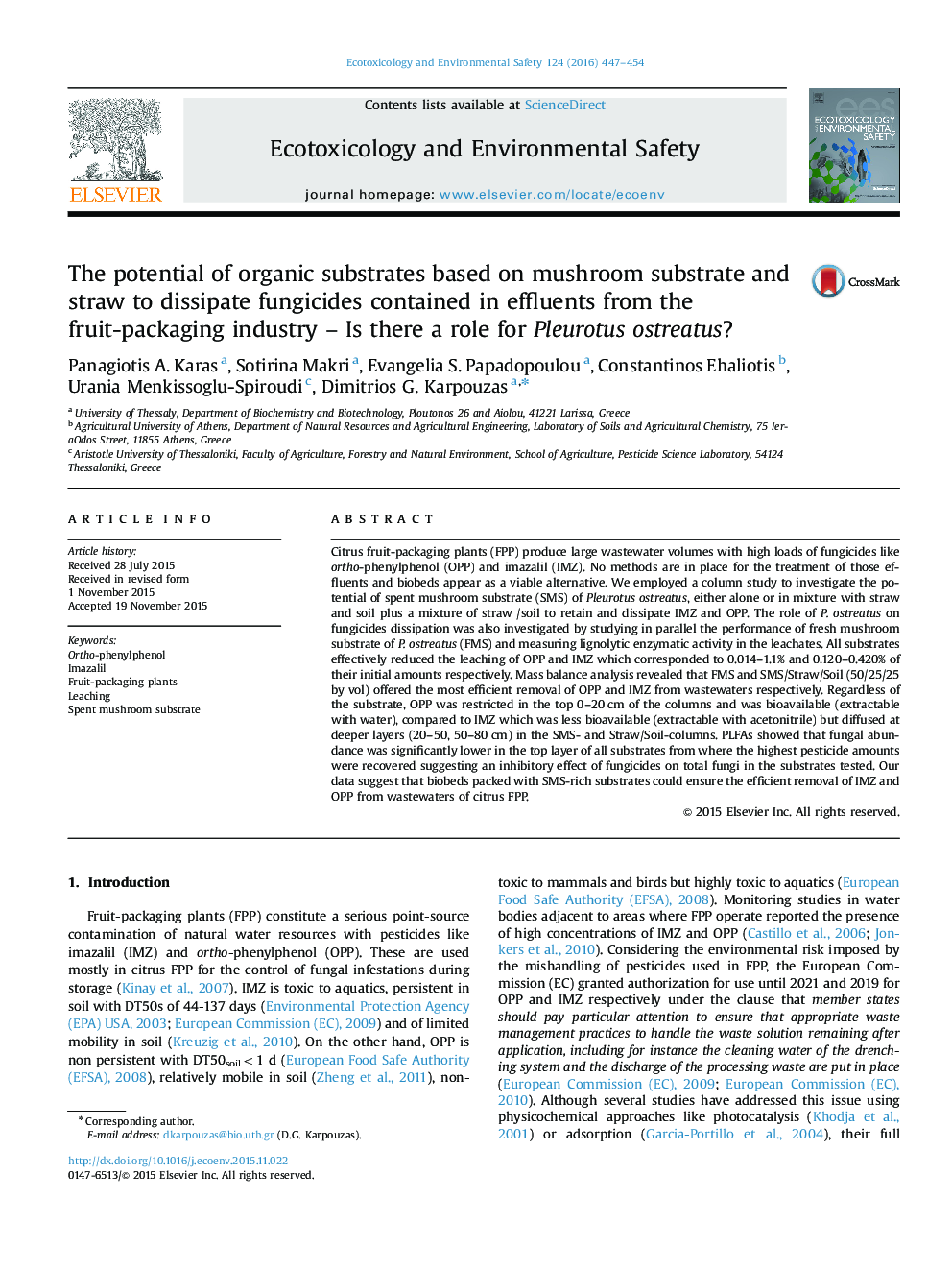| Article ID | Journal | Published Year | Pages | File Type |
|---|---|---|---|---|
| 6312010 | Ecotoxicology and Environmental Safety | 2016 | 8 Pages |
Abstract
Citrus fruit-packaging plants (FPP) produce large wastewater volumes with high loads of fungicides like ortho-phenylphenol (OPP) and imazalil (IMZ). No methods are in place for the treatment of those effluents and biobeds appear as a viable alternative. We employed a column study to investigate the potential of spent mushroom substrate (SMS) of Pleurotus ostreatus, either alone or in mixture with straw and soil plus a mixture of straw /soil to retain and dissipate IMZ and OPP. The role of P. ostreatus on fungicides dissipation was also investigated by studying in parallel the performance of fresh mushroom substrate of P. ostreatus (FMS) and measuring lignolytic enzymatic activity in the leachates. All substrates effectively reduced the leaching of OPP and IMZ which corresponded to 0.014-1.1% and 0.120-0.420% of their initial amounts respectively. Mass balance analysis revealed that FMS and SMS/Straw/Soil (50/25/25 by vol) offered the most efficient removal of OPP and IMZ from wastewaters respectively. Regardless of the substrate, OPP was restricted in the top 0-20Â cm of the columns and was bioavailable (extractable with water), compared to IMZ which was less bioavailable (extractable with acetonitrile) but diffused at deeper layers (20-50, 50-80Â cm) in the SMS- and Straw/Soil-columns. PLFAs showed that fungal abundance was significantly lower in the top layer of all substrates from where the highest pesticide amounts were recovered suggesting an inhibitory effect of fungicides on total fungi in the substrates tested. Our data suggest that biobeds packed with SMS-rich substrates could ensure the efficient removal of IMZ and OPP from wastewaters of citrus FPP.
Related Topics
Life Sciences
Environmental Science
Environmental Chemistry
Authors
Panagiotis A. Karas, Sotirina Makri, Evangelia S. Papadopoulou, Constantinos Ehaliotis, Urania Menkissoglu-Spiroudi, Dimitrios G. Karpouzas,
